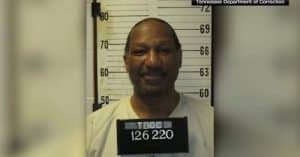Byron Black, 69, was executed by lethal injection in Tennessee on Tuesday despite unresolved concerns over his implanted defibrillator and his mental state. Black, who suffered from dementia, kidney failure, and congestive heart failure, died at 10:43 a.m., reportedly in visible discomfort during the procedure.
His lawyers had argued that his defibrillator—a device meant to shock the heart in emergencies—should be turned off before the execution to avoid unnecessary pain. A lower court agreed, but the state Supreme Court overturned that decision, and the U.S. Supreme Court later rejected a final appeal. Tennessee officials claimed the device wouldn’t cause pain or interfere with the execution.
Black was convicted in 1988 for the murders of his girlfriend Angela Clay and her two daughters, 9-year-old Latoya and 6-year-old Lakeisha. He was on work release at the time, serving a sentence for shooting Clay’s estranged husband.

In recent years, Black’s legal team argued he was intellectually disabled and thus ineligible for execution under Supreme Court precedent. Despite support from the Nashville District Attorney, his case was denied a new hearing under a technicality in a 2021 state law.
Black was the 28th person executed in the U.S. this year—marking the highest number since 2015.




